If you’re like most people, your list of things you wouldn’t do to lose weight faster is probably rather short.
You know, you probably wouldn’t accept a dinner invitation from Jeffrey Dahmer, go for a night out on the town with Aaron Hernandez, or drink a gallon of Mexican tap water.
Subject yourself to a grueling diet, though?
Feed yourself heaps of pills and powders?
Drag yourself through tortuous workouts every day?
Uh, isn’t that what weight loss is all about?
Well, no.
You don’t have to suffer to have the body you want.
You don’t have to battle hunger and cravings, you don’t have to stop eating the foods you like, and you don’t have to pray for results.
When you know what you’re doing, you can comfortably drop pounds eating foods you enjoy and know, with absolute certainty, that you’re going to reach your goals.
And that brings us to the subject at hand–low-carb dieting.
Most people don’t know much about how to lose weight, but they know this:
“You have to cut your carbs.”
And, they think, the closer you come to zero, the faster you’re going to get lean.
Well, it’s not that simple.
As you’ll see, low-carb dieting may help you lose weight faster in the short term, but not fat. And over the long term, it doesn’t make a difference whatsoever.
If that sounds like dietary blasphemy to you, don’t worry. By the end of the article, it will all make sense.
Let’s start at the beginning…
Table of Contents
+Why a Low-Carb Diet? What’s So Bad About Carbs?
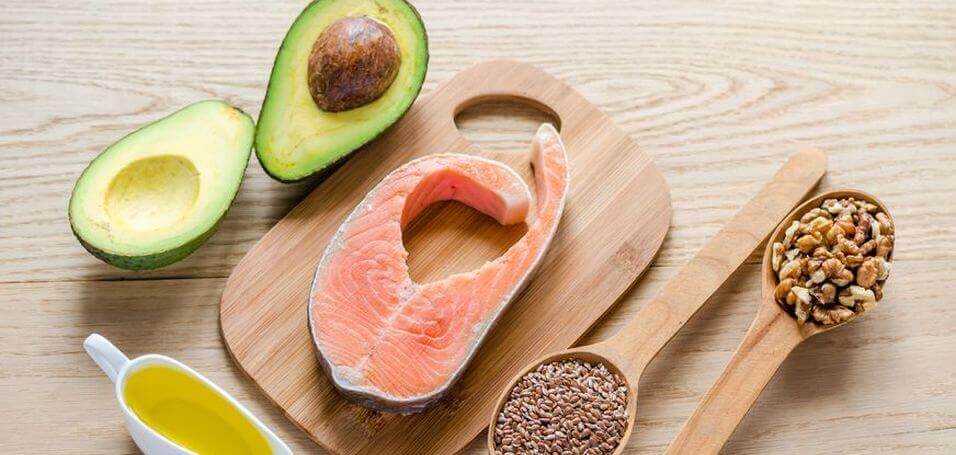
You’ve just met someone.
What two things are you not supposed to talk about?
Religion and politics, right?
Well, these days, diet needs to be added to that list.
You make an offhand comment about counting calories or eating gluten or sugar and, before you know it, lava is running through your veins.
And if there’s one aspect of dieting that people love to argue the most about, it’s carbohydrate intake.
Why, though? What’s so controversial about this little bugger?
Well, most of the contention is over the hormone insulin.
The problem, we’re told, is that eating carbs spikes insulin levels, which in turn spikes fat storage.
Thus, if you want to minimize fat storage, you want to minimize insulin production. And low-carb dieting is the best way to accomplish that.
This type of reductionism may go over well with the unsuspecting masses, but it’s far from the truth.
Yes, insulin causes fat storage, but no, it doesn’t make you fat. Overeating does.
No, I’m not riddling. That’s the reality.
Let’s unpack it, starting with a simple definition of terms.
Insulin is a hormone produced by the pancreas and its job is to shuttle nutrients into your cells.
When you eat food, it’s broken down into its constituent parts, which are the molecules your body needs to survive.
These substances make their way into your bloodstream along with insulin, which helps transport them into tissues like muscle and fat.
As your body digests and absorbs the food you’ve eaten, insulin levels drop. Eventually, the process is complete and insulin levels settle at a low, “baseline” level.
Then, when you eat again, the entire process repeats–insulin levels rise, food is digested and absorbed, and insulin levels fall.
(In addition to insulin’s role in glucose absorption, it also plays a vital role in the absorption of amino acids.)
Thus, insulin is very much your friend. Without it, you would die.
Why, then, is it demonized?
Well, I mentioned above that insulin helps transport nutrients into fat cells.
What, exactly, does it feed these fat cells, though?
The answer is glucose, which is obtained mainly through the carbs you eat.
In this way, eating carbs, which raises the plasma (blood) levels of both glucose and insulin, can quite literally make you fatter.
Thus, a rule of thumb is born:
High daily carb intake = high insulin levels = store a bunch of fat = be fat.
And then the corollary:
Low daily carb intake = low insulin levels = burn a bunch of fat = be lean.
Simple…sexy…and spurious.
To discover why, we have to discuss two things:
- The physiology of fat burning and storage.
- The concept of energy balance.
How Your Body Burns and Stores Fat
Let’s start with a graph:
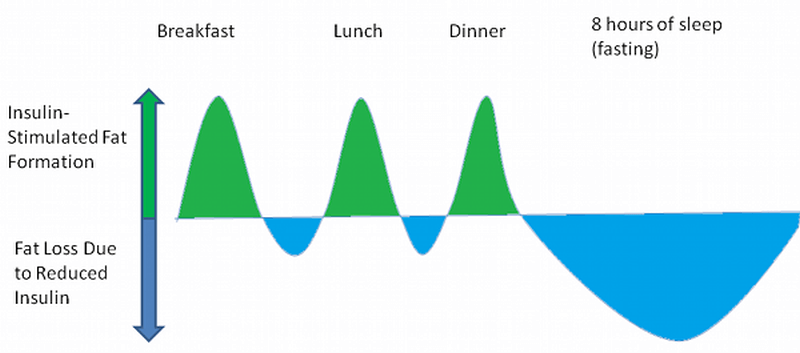
This is how your total body fat levels increase and decrease every day.
The green portions represent periods of fat storage following meals, when insulin levels are high.
The blue portions represent periods of fat burning when energy from food isn’t available and insulin levels are low.
As you can see, your body is always either storing or burning fat, and it flips between these states several times every day (depending on your eating schedule).
This graph also illustrates why insulin-stimulated fat storage isn’t bad per se.
If your body were suddenly unable to replenish fat stores, it would run out of energy reserves to tap into when food isn’t available, and you would eventually die.
Now, when people object to “gaining weight,” they’re not grumbling about the balanced give-and-take relationship illustrated above. They’re referring to an increase in total fat mass over time.
That is, if someone has 25 pounds of fat on his body now, he doesn’t care how his fat stores fluctuate every day–he just doesn’t want to have 35 pounds a year now from now.
How exactly does that happen, though? And what does insulin have to do with it?
Well, the first thing we have to realize is this:
An increase in total fat mass represents an increase in the total amount of energy stored in the body.
(A pound of fat contains somewhere around 3,500 calories of energy, if someone increases their total fat mass by 10 pounds over time, we’d be looking at an increase from about 87,500 calories of stored energy to 122,500 calories.)
This, then, begs the question of what must occur physiologically for energy stores to increase.
Well, the first law of thermodynamics provides the answer.
Energy can change forms but can’t be created or destroyed, so the only way total fat stores can increase is by feeding your body more energy than it’s burning.
You see, your body burns a certain amount of energy every day just staying alive and moving around, and if you were to eat exactly that much energy every day, there would be nothing left over to use for increasing body fat levels.
Thus, your body fat levels wouldn’t change regardless of what does or doesn’t happen with insulin levels.
In other words, insulin can’t magically create a surplus of energy to be stored as fat. It can only work with the energy you provide.
This is why the most fundamental element of dieting that you must get right is your caloric (energy) intake.
And this brings us to the principle of energy balance, which is simply the relationship between the amount of energy you eat and the amount you burn.
Think of it like your body’s energy checking account.
- If you eat more energy than you burn, you’re in a positive energy balance (a calorie surplus).
- If you eat less than you burn, you’re in a negative energy balance (a calorie deficit).
Now, the unsexy truth that many people just don’t want to hear is this:
Meaningful weight loss requires eating less energy than you burn, and meaningful weight gain requires eating more.
This isn’t an opinion. This is scientific fact.
This isn’t news, either.
After a century of metabolic research and anecdotal evidence, there’s no room left for argument. Energy balance dictates weight loss and gain, not food choices or meal frequency or any other factor.
Thus, when we’re just talking weight, a calorie is a calorie.
(When we’re talking body composition, that’s no longer true. You can learn more about this here.)
This is why research shows that so long as they’re eating less energy than they’re burning, people lose fat equally well on highly insulinogenic high-carb diets or less insulinogenic low-carb diets.
And this is why why Professor Mark Haub was able to lose 27 pounds on a “convenience store diet” consisting mainly of Twinkies, Little Debbie cakes, Doritos, and Oreos.
My point is this:
Insulin levels and the amount of carbs you eat have little to do with losing or gaining weight.
Energy balance is the key.
Don’t Studies Show That Low-Carb Is Better for Fat Loss, Though?
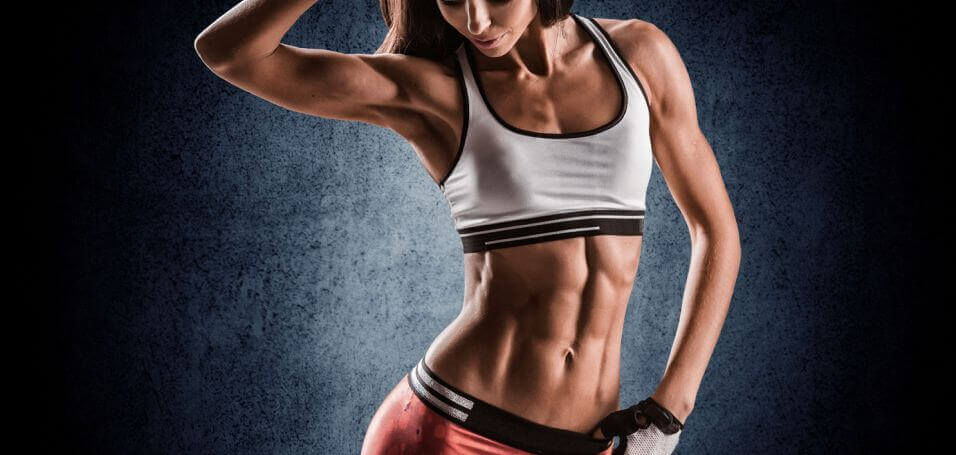
Yes.
There are studies that conclude that low-carb dieting is better for weight loss.
This, this, and this are a few of the more popular ones that low-carb advocates love to share as definitive proof of the superiority of their mouse trap.
There’s a problem, though: other studies show otherwise.
For example, this study conducted by researchers at Arizona State University found that a low-carb diet offered no metabolic advantages. Several other studies have concluded the same–that a low-carb diet doesn’t help you lose fat faster.
What gives?
Well, if you review the design of studies on both sides of this coin, something jumps out at you fairly quickly:
When a low-carb diet has beaten out a higher-carb diet in weight lost, it has invariably contained more protein.
Yes, one for one…without fail.
In some cases, the high-carb groups were given less protein than even the RDI of 0.8 grams per kg of body weight, which is just woefully inadequate for weight loss purposes.
In fact, studies have shown that double and even triple those (RDI) levels of protein intake isn’t enough to fully prevent the loss of lean mass while restricting calories for fat loss.
This is a catastrophic design flaw because it’s not an apples-to-apples comparison.
You can’t pit a high-protein, low-carb diet against a low-protein, high-carb diet, observe the former results in more weight loss, and then ascribe the benefits to the low-carb element of the design.
And especially not when it’s a well-known fact that a high-protein intake is superior for losing weight.
Instead, you’d have to compare a high-protein, low-carb diet and a high-protein, high-carb diet to get a real assessment of whether low-carb truly is better for weight loss.
And fortunately, that has already been done. Multiple times. And each demonstrated the same result:
When protein intake is matched among low-carb and high-carb dieters, there is no significant difference in weight loss.
That is, a high-protein, low-carb diet simply doesn’t help you lose fat faster than a high-protein, high-carb diet.
“But I’ve Lost Weight Faster With a Low-Carb Diet! I Swear!”
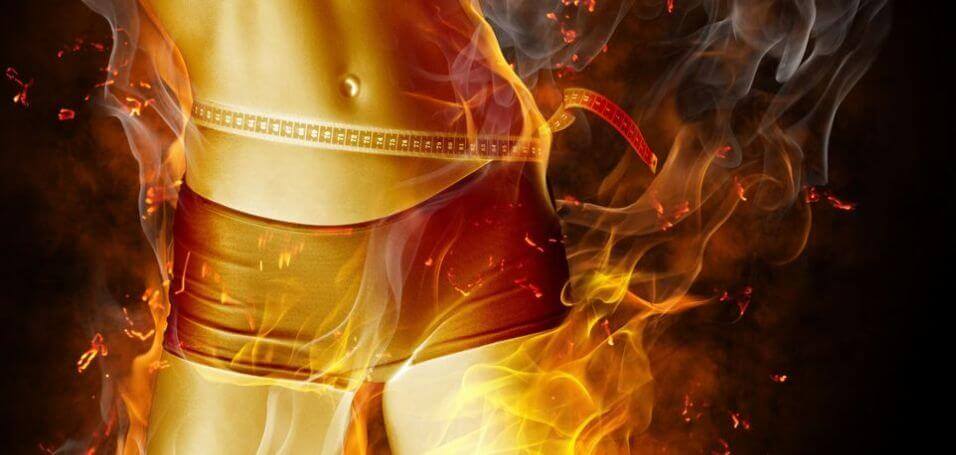
I believe you.
A low-carb diet may not be able to help you lose fat faster, but it certainly can help you lose weight faster.
In the beginning, at least.
The reason for this the amount of carbs you eat greatly affects how much water your body retains.
There are several ways it does this, but there’s one in particular that I want to call out here.
When you eat carbs, they’re broken down into glucose (blood sugar).
Some of the glucose is burned for energy and some is converted into another form known as glycogen, which is stored in the liver and muscles.
This is why research shows that increasing carbohydrate intake increases glycogen stores and reducing intake reduces them.
Now, guess what else increases when glycogen levels rise?
You got it–water.
Specifically, glycogen is stored with three to four parts water, which means that every gram of glycogen is accompanied by three to four grams of water.
When you consider that the average man can store up to 15 grams of glycogen per kilogram of body weight, and that exercise further increases the glycogen storage capacity of muscle tissue, you get an idea of how much weight can change due to fluctuations in glycogen and water alone.
For instance, I weigh about 86 kilograms (190 pounds) and have quite a bit more muscle than the average man, I exercise regularly, and I eat a relatively high-carbohydrate diet (1.5 to 2 grams of carbs per pound with occasional refeeds).
Thus, a “safe” estimate of my total body glycogen stores is probably around 800 grams, which would mean I’m also holding about 2,400 grams of water, for a total weight of ~3,200 grams.
That’s over 7 pounds.
Now, what do you think would happen if I drastically cut my carbs?
My whole-body glycogen levels would plummet, which would also flush a large amount of water out of my body.
The net effect would be rapid weight loss…but not rapid fat loss.
This may be useful to a bodybuilder prepping for a show or a fitness model gearing up (har har) for a shoot, but it’s of little consequence to the rest of us.
An initial burst of water weight loss may be encouraging if you didn’t know what was actually going on, but now that you do, I think you see why it really means nothing.
(And let’s not forget that much, if not all, of the water weight you’ve lost by reducing carb intake and thereby glycogen stores will return when carb intake returns to normal.)
Is a Low-Carb Diet Good for Anything, Then?
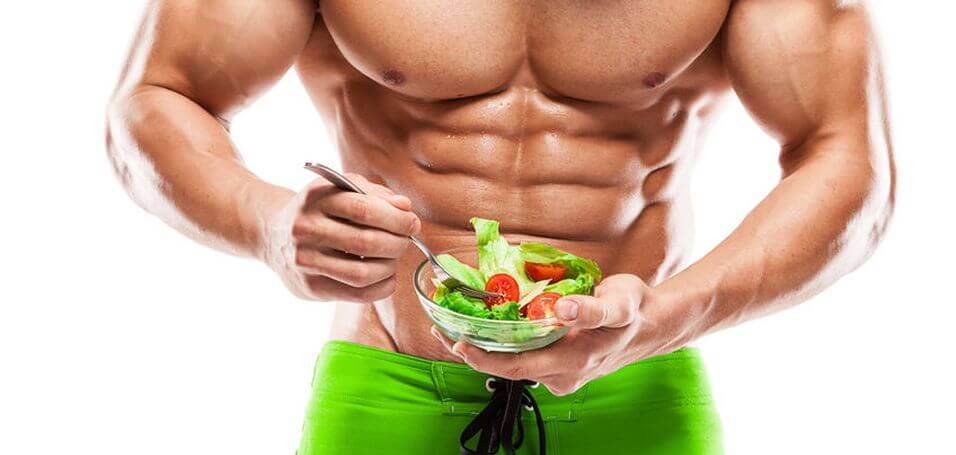
A low-carb diet may not be in the catbird seat, but that doesn’t mean it has no place at the table.
There are a few scenarios where I believe a low-carb diet is best.
If you want to look as lean as possible for a show, photoshoot, etc.
5 to 7 days of low-carbing (0.5 grams of carb per pound or less) will reduce the amount of water under your skin, making you look leaner.
This is why many fitness models and bodybuilders use low-carb diets and abuse diuretics (which is very dangerous, I might add).
If you’re very overweight.
One of the many downsides to being overweight is impaired insulin sensitivity.
This can manifest itself in various ways, but one of the more common symptoms is a tired, lethargic feeling after eating a carbohydrate-rich meal.
If that’s you, then you’ll probably feel better on a lower-carb diet (and you may even lose fat faster, too).
That said, losing fat and exercising regularly greatly improve insulin sensitivity, so just because you’re very overweight doesn’t necessarily mean you have to go low-carb.
If you’re completely sedentary.
Carbs are primarily energetic, so if you don’t do much of anything with your body, it doesn’t need very much energy.
If you’re struggling with acne, eliminating high-glycemic carbs and reducing carb intake, in general, may help.
Reducing dairy intake may help as well.
The Bottom Line on the Low-Carb Diet and Weight Loss

The low-carb diet is more a fad than anything else.
Sure, it has advantages and is appropriate for some people, but the crowd it’s most fervently promoted to (fitness folk) are the ones that need it the least.
The bottom line is if you’re physically active, healthy, and have good insulin sensitivity, and are looking to build muscle and lose fat, a low-carb diet isn’t for you.
Instead, a moderately high-carb and moderately low-fat diet is going to serve your needs much better.
If you want to learn more about that, check out this article on making meal plans that work.
What’s your take on the low-carb diet? Have anything else to share? Let me know in the comments below!
Scientific References +
- Bowe, W. P., Joshi, S. S., & Shalita, A. R. (2010). Diet and acne. Journal of the American Academy of Dermatology, 63(1), 124–141. https://doi.org/10.1016/J.JAAD.2009.07.043
- MA, C., WT, D., R, P., I, G., R, W., S, E., PJ, E., ML, G., JO, H., RH, E., & B, D. (2005). Insulin sensitivity determines the effectiveness of dietary macronutrient composition on weight loss in obese women. Obesity Research, 13(4), 703–709. https://doi.org/10.1038/OBY.2005.79
- M, Z., T, H., S, Z., & L, Z. (2015). Associations of Different Adipose Tissue Depots with Insulin Resistance: A Systematic Review and Meta-analysis of Observational Studies. Scientific Reports, 5. https://doi.org/10.1038/SREP18495
- WM, S., DL, C., WJ, F., & JM, M. (1981). Effect of exercise-diet manipulation on muscle glycogen and its subsequent utilization during performance. International Journal of Sports Medicine, 2(2), 114–118. https://doi.org/10.1055/S-2008-1034594
- J, J., PI, R., AJ, K., & YC, L. (2011). The role of skeletal muscle glycogen breakdown for regulation of insulin sensitivity by exercise. Frontiers in Physiology, 2. https://doi.org/10.3389/FPHYS.2011.00112
- KJ, A., Y, S., T, B., K, A., JP, F., & E, J. (1988). Glycogen storage capacity and de novo lipogenesis during massive carbohydrate overfeeding in man. The American Journal of Clinical Nutrition, 48(2), 240–247. https://doi.org/10.1093/AJCN/48.2.240
- SN, K., AY, C., & KF, S. (1992). Glycogen storage: illusions of easy weight loss, excessive weight regain, and distortions in estimates of body composition. The American Journal of Clinical Nutrition, 56(1 Suppl). https://doi.org/10.1093/AJCN/56.1.292S
- KL, O., SE, P., RJ, J., & CA, H. (2010). Carbohydrate exerts a mild influence on fluid retention following exercise-induced dehydration. Journal of Applied Physiology (Bethesda, Md. : 1985), 108(2), 245–250. https://doi.org/10.1152/JAPPLPHYSIOL.91275.2008
- FM, S., GA, B., VJ, C., SR, S., DH, R., SD, A., K, M., CM, C., LM, B., N, L., MS, L., JC, R., L, de J., FL, G., CM, L., E, O., & DA, W. (2009). Comparison of weight-loss diets with different compositions of fat, protein, and carbohydrates. The New England Journal of Medicine, 360(9), 859–873. https://doi.org/10.1056/NEJMOA0804748
- SA, P., JW, J., AQ, S., AQ, S., JP, K., J, P., RG, H., & DD, G. (2008). Benefit of low-fat over low-carbohydrate diet on endothelial health in obesity. Hypertension (Dallas, Tex. : 1979), 51(2), 376–382. https://doi.org/10.1161/HYPERTENSIONAHA.107.101824
- CS, J., SL, T., PD, S., A, W., H, H., & B, S. (2006). Ketogenic low-carbohydrate diets have no metabolic advantage over nonketogenic low-carbohydrate diets. The American Journal of Clinical Nutrition, 83(5), 1055–1061. https://doi.org/10.1093/AJCN/83.5.1055
- N, S., EA, A., M, B., A, M., R, M., D, H.-A., & HJ, S. (2012). Effects of higher- versus lower-protein diets on health outcomes: a systematic review and meta-analysis. European Journal of Clinical Nutrition, 66(7), 780–788. https://doi.org/10.1038/EJCN.2012.37
- S, M., N, M., & KD, T. (2010). Increased protein intake reduces lean body mass loss during weight loss in athletes. Medicine and Science in Sports and Exercise, 42(2), 326–337. https://doi.org/10.1249/MSS.0B013E3181B2EF8E
- DK, L., RA, B., DJ, E., JE, P., H, S., C, S., & DD, C. (2003). A reduced ratio of dietary carbohydrate to protein improves body composition and blood lipid profiles during weight loss in adult women. The Journal of Nutrition, 133(2), 411–417. https://doi.org/10.1093/JN/133.2.411
- CA, T., AT, S., JW, B., E, C., E, N., G, F., & PA, T. (2010). Changes in body weight and metabolic indexes in overweight breast cancer survivors enrolled in a randomized trial of low-fat vs. reduced carbohydrate diets. Nutrition and Cancer, 62(8), 1142–1152. https://doi.org/10.1080/01635581.2010.513803
- SA, P., JW, J., AQ, S., AQ, S., JP, K., J, P., RG, H., & DD, G. (2008). Benefit of low-fat over low-carbohydrate diet on endothelial health in obesity. Hypertension (Dallas, Tex. : 1979), 51(2), 376–382. https://doi.org/10.1161/HYPERTENSIONAHA.107.101824
- CS, J., SL, T., PD, S., A, W., H, H., & B, S. (2006). Ketogenic low-carbohydrate diets have no metabolic advantage over nonketogenic low-carbohydrate diets. The American Journal of Clinical Nutrition, 83(5), 1055–1061. https://doi.org/10.1093/AJCN/83.5.1055
- FF, S., N, I., P, S., KL, C., DA, D., J, M., T, W., M, W., EJ, G., & L, S. (2003). A low-carbohydrate as compared with a low-fat diet in severe obesity. The New England Journal of Medicine, 348(21), 2074–2081. https://doi.org/10.1056/NEJMOA022637
- Volek, J., Sharman, M., Gómez, A., Judelson, D., Rubin, M., Watson, G., Sokmen, B., Silvestre, R., French, D., & Kraemer, W. (2004). Comparison of energy-restricted very low-carbohydrate and low-fat diets on weight loss and body composition in overweight men and women. Nutrition & Metabolism, 1, 13. https://doi.org/10.1186/1743-7075-1-13
- WS, Y., MK, O., JR, G., RP, B., & EC, W. (2004). A low-carbohydrate, ketogenic diet versus a low-fat diet to treat obesity and hyperlipidemia: a randomized, controlled trial. Annals of Internal Medicine, 140(10). https://doi.org/10.7326/0003-4819-140-10-200405180-00006
- FM, S., GA, B., VJ, C., SR, S., DH, R., SD, A., K, M., CM, C., LM, B., N, L., MS, L., JC, R., L, de J., FL, G., CM, L., E, O., & DA, W. (2009). Comparison of weight-loss diets with different compositions of fat, protein, and carbohydrates. The New England Journal of Medicine, 360(9), 859–873. https://doi.org/10.1056/NEJMOA0804748
- GA, H., RP, S., AE, P., M, B., EP, C., JR, J., VK, P., TG, H., JR, H., DP, O., E, A., S, B., & SN, B. (2013). The energy balance study: the design and baseline results for a longitudinal study of energy balance. Research Quarterly for Exercise and Sport, 84(3), 275–286. https://doi.org/10.1080/02701367.2013.816224
- M, W. (1958). Caloric equivalents of gained or lost weight. The American Journal of Clinical Nutrition, 6(5), 542–546. https://doi.org/10.1093/AJCN/6.5.542
- Bowen, R. (n.d.). Physiologic Effects of Insulin. Retrieved August 26, 2021, from http://www.vivo.colostate.edu/hbooks/pathphys/endocrine/pancreas/insulin_phys.html










